Research Council of Finland establishes a Center of Excellence in Quantum Materials
The Centre, called QMAT, creates new materials to power the quantum technology of coming decades.
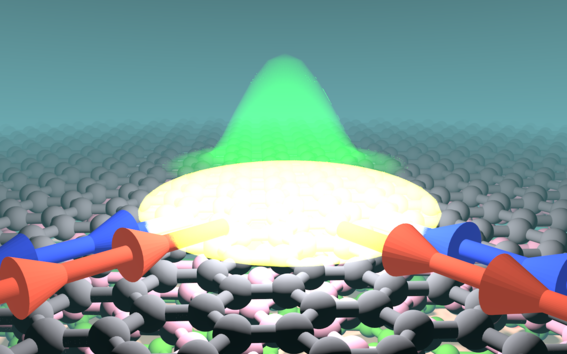
The Correlated Quantum Materials (CQM) group focuses on theoretically studying emerging quantum phenomena in quantum materials. The core of our research focuses on the theoretical design and engineering of new quantum materials with exotic properties that are hard to find in natural compounds. Specifically, we are working on designing quantum materials featuring exotic quantum phenomena, including unconventional superconductivity, symmetry-broken states, topological states, unconventional magnetic order, and fractional emergent quantum excitations. For this purpose, we combine theoretical methodologies from condensed matter physics, quantum many-body physics, quantum chemistry, machine learning, and materials science. The research of my group focuses on three core directions:
(1) To design and engineer exotic phenomena in van der Waals quantum materials
(2) To theoretically explore the emergence of new physics in interacting quantum many-body systems
(3) To develop machine learning algorithms to tackle open problems in quantum materials
These research lines focus respectively on specific directions in material science (1), condensed matter physics (2), and machine learning (3). As part of these three research lines, we pursue a variety of method development, including low-energy electronic structure methods, first principles methods, variational quantum many-body algorithms, and neural-network methods for quantum systems. These three research lines share strong synergies between themselves, often benefiting from common project and method developments. Besides our theory work, we often collaborate with experimental research groups to design quantum materials in general, and van der Waals materials in particular.
Current main research lines:
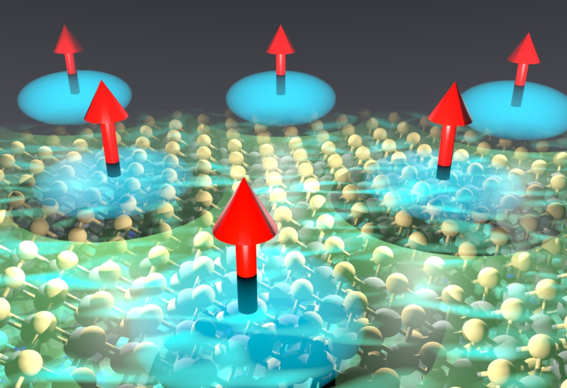
Theory of van der Waals quantum materials
Van der Waals heterostructures provide an outstanding platform to engineer elusive quantum phenomena, by exploiting materials engineering, twist engineering and proximity effects. These strategies allow controlling the strength of quantum many-body interactions, and tailoring the internal quantum degrees of freedom, establishing unique playground to create quantum states of matter that rely on the coexistence of antagonists electronic orders. We are interested in developing new theoretical routes to exploit the flexibility of these materials to create exotic physics not accessible in conventional compounds. On the theory side, among others, we recently showed:
- Controlling artificial gauge fields electrically in twisted graphene multilayers
- Designing frustrated valley magnets in twisted graphene multilayers
- Generating electrically controllable correlated states in twisted graphene multilayers
- Engineering artificial heavy-fermion correlated states in twisted graphene multilayers
- Revealing the mechanism leading to multiferroic order in a van der Waals monolayer
In collaboration with experimental groups, we recently experimentally demonstrated:
- Realizing an artificial many-body heavy-fermion state in van der Waals multilayers
- Probing magnetic excitations in van der Waals magnets
- Designing magnetically frustrated van der Waals magnets with spin-orbit coupling engineering
- Probing crystal field effects in twisted graphene multilayers.
The methodologies that we develop are implemented in freely available in an open source library to study electronic, interacting and topological properties of tight binding models.
Current main research lines:
- Tunable correlated quantum matter in twisted van der Waals materials
- Van der Waals multiferroics
- Heavy-fermion Kondo quantum matter in van der Waals materials
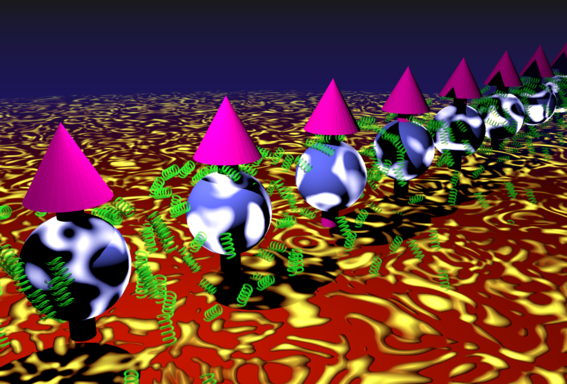
Emergence in quantum many-body physics
Interactions in strongly correlated materials are capable of creating exotic behaviors not existent in conventional compounds. Paradigmatic examples of this are unconventional superconducting states, strongly correlated topological states, and fractionalized particles. We are focusing on exploring new forms of quantum matter that can emerge in systems showing quasiperiodicity, strong many-body interactions, and coupling to an environment. From a methodological perspective, part of my strategy focuses on exploring these exotic states using tensor-network methods both closed systems and open quantum many-body models, and how to use this methods to simulate noisy quantum computers. Among other, we have recently shown
- Designing solitonic excitations between quantum disordered magnets and superconductors
- Designing quasiperiodic systems featuring topological excitations in purely quantum many-body systems
- Engineering topological modes in non-Hermitian interacting systems
In collaboration with experimental groups, we experimentally showed:
- Generating and probing criticality in quasiperiodic states
- Promoting topological superconducting excitations with moire patterns
- Engineering and detecting triplon excitations in a designer quantum magnet
The methods we design are also implemented in freely available open source libraries we develop to solve quantum many-body problems with tensor networks.
Current main research lines:
- Non-Hermitian interacting many-body topology
- Tensor-network methods for non-Hermitian dynamical quantum many-body matter
- Quantum-circuit tensor-network algorithms for quantum matter
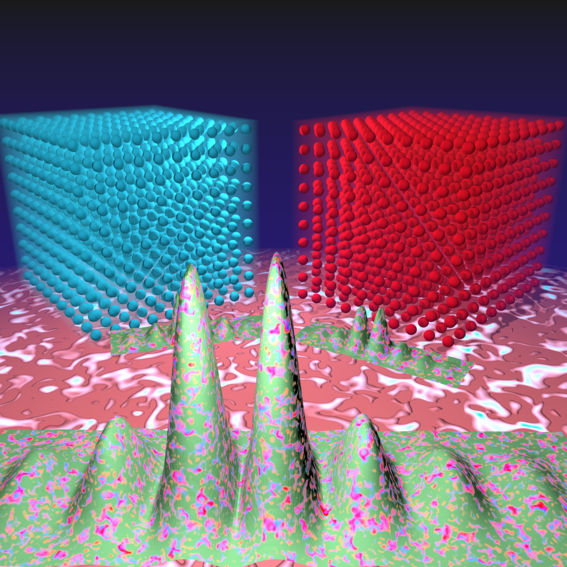
Machine learning quantum materials
A variety of problems in quantum materials remain greatly challenging with conventional methods. We are focusing on how to use generative machine learning to design quantum materials, how to solve interacting two-dimensional quantum many-body problems with neural network solvers, and how to infer Hamiltonians from experimentally available measurements with machine learning. We are focusing on developing generative machine learning algorithms provide to explore complex behavior in quantum materials, allowing the incorporation of interactions, disorder, and hidden variables. From the many-body solver perspective, neural network quantum states have risen as a greatly powerful many-body methodology for interacting systems, providing a well-suited method to solve complex correlated two-dimensional models. Finally, we are specially interested in developing strategies for Hamiltonian learning, an inverse problem of critical importance for quantum materials that cannot be solved using conventional methods in condensed matter physics. Ultimately, we aim to combine generative models and Hamiltonian learning, bringing together experimental data and theoretical models. Some of our recent demonstrations include:
- Machine learning quantum many-body correlation entropy from local measurements
- Exploiting generative adversarial machine learning for dynamical quantum matter and Hamiltonian learning
- Predicting phase transition in quantum magnets with neural-network quantum state solvers
- Hamiltonian learning from local dynamical spectroscopy in quantum magnets
Current main research lines:
- Generative-adversarial machine learning for quantum materials
- Machine learning entanglement in quantum materials
- Neural-network methods for quantum criticality
- Machine learning methods for Hamiltonian learning from experimental data
Current group members:
- Jose Lado: Assistant professor
- Elizabeth Pereira: Doctoral Researcher (co-supervised with Prof. Andrea Blanco-Redondo and Dr. Hongwei Li)
- Tiago Antao: Doctoral Researcher (co-supervised with Dr. Adolfo Fumega)
- Greta Lupi: Doctoral Researcher (co-supervised with Prof. Peter Liljeroth)
- Ana Vera: Doctoral Researcher (co-supervised with Dr. Adolfo Fumega and Prof. Peter Liljeroth)
- Yitao Sun: Doctoral Researcher (co-supervised with Prof. Shawulienu Kezilebieke)
- Henrik Stenbrink: Doctoral researcher (co-supervised with Prof. Miguel Caro)
- Curie Lee: Doctoral Researcher
- Alessandro Orsini: Doctoral researcher (supervised by Adolfo Fumega)
- Adolfo Fumega: RCF Research Fellow
- Cuiju Yu: Postdoctoral Researcher (co-supervised with Prof. Zhipei Sun)
- Anouar Moustaj: Postdoctoral Researcher
- Faluke Aikebaier: Visiting Postdoctoral Researcher (from Prof. Teemu Ojanen's group at Tampere U.)
Former group members
- Guangze Chen: Doctoral Researcher
- Maryam Khosravian: Doctoral Researcher (co-supervised with Prof. Peter Liljeroth)
- Rouven Koch: Doctoral Researcher
- Pascal Vecsei: Doctoral Researcher (co-supervised with Prof. Christian Flindt)
- Marcel Niedermeier: Doctoral Researcher (co-supervised with Prof. Christian Flindt)
- Isac Sahlberg: Industrial Researcher
- Netta Karjalainen: M.Sc. Researcher
- Sebastian Dominguez: Research Assistant
- Leonardo Labastida: Visiting Ph.D. researcher
- Henri Ojanen: Research Assistant
- Zina Lippo: Research Assistant
- Maaria Tiiri: Research Assistant
- Kristin Lien: Research Assistant
- Min Xue Yang: Visiting Doctoral Researcher
- Mircea Trif: Visiting Researcher (PI at International Research Centre MagTop, Poland)
- Vilja Kaskela: MSc Researcher (co-supervised with Dr. Adolfo Fumega)
- Marc Nairn: Research Assistant (co-supervised with Prof. Christian Flindt)
- Timo Hyart: Research Fellow
- Mikael Haavisto: Research Assistant (co-supervised with Dr. Adolfo Fumega)
- Prateek Chawla: Postdoctoral Researcher (co-supervised with Prof. Christian Flindt)
- Pramod Kumar: Postdoctoral Researcher
- Valerii Kachin: Research Assistant (co-supervised with Prof. Teemu Ojanen and Dr. Timo Hyart)
- Heikki Systä: Research Assistant (co-supervised with Prof. Päivi Törmä)
- Pinja Hirvinen: Research Assistant
- Timo Kist: Research Assistant (co-supervised with Prof. Christian Flindt)
- Senna Luntama: Research Assistant (co-supervised with Prof. Päivi Törmä)
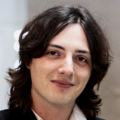
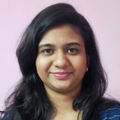
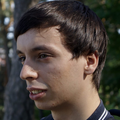
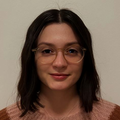
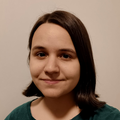

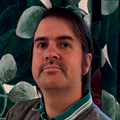
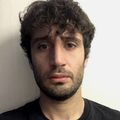
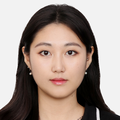



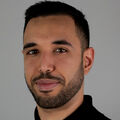
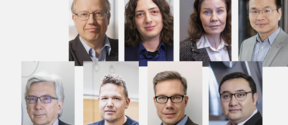
The Centre, called QMAT, creates new materials to power the quantum technology of coming decades.

Turning energy loss from a fatal flaw into a dial for fine-tuning new states of matter into existence could yield better laser, quantum and optical technology.
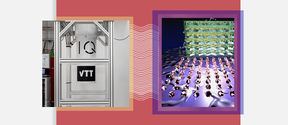
A team of Aalto researchers demonstrated how the Finnish quantum computer Helmi can be used to understand topological quantum materials, providing a stepping stone to designing exotic quantum materials with quantum computers
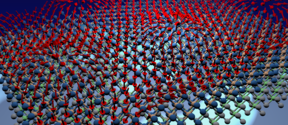
Research into moiré patterns in two-dimensional van der Waals materials provides a new way to engineer quantum matter that may lead to more energy-efficient memory storage and improved quantum technologies

Aalto University physics professor Jose Lado will use this funding to engineer a new type of topological quantum material that could have applications for quantum bit, or “qubit,” development for noise-resilient topological quantum computation.
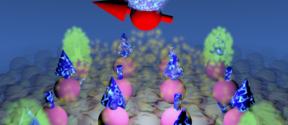
Researchers created a new quantum state of matter, dubbed a high-order topological magnet, that may address key issues in quantum technology.
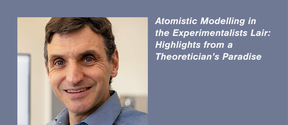
Prof. Daniele Passerone will give a seminar about highlights and breakthroughs in the last years in the fields of molecular and nano electronic transport and others
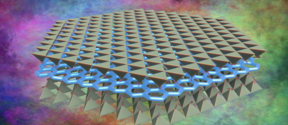
Researchers reveal the microscopic nature of the quantum entangled state of a new monolayer van der Waals material
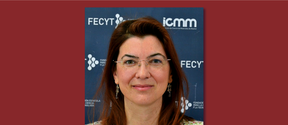
Elsa Prada will give a seminar about Majorana-bound states in superconductor-semiconductor nanostructures

Read the story of prize-winning Bachelor student’s summer internship at Aalto

Professor Jose Lado was awarded the Early Career Award 2023 by the Spanish Physics Society (RSEF) and the BBVA Foundation. The Early Career Theory Award is awarded to a physicist, either Spanish or currently working in Spain, with 35 years or less, for outstanding contributions to theoretical physics.
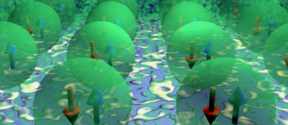
A team from Aalto University and the University of Jyväskylä have created an artificial quantum magnet featuring a quasiparticle made of entangled electrons, the triplon

Aalto physicist awarded by European Physical Society for quantum materials research contributions
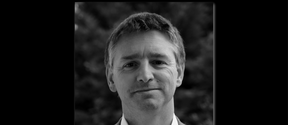
Nuno Peres will give a seminar entitled "Plasmons, magnons and superconducting excitations in 2D materials"
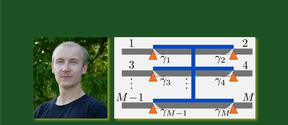
Jukka Väyrynen will give a seminar entitled "Topological Kondo effects in mesoscopic systems"

Researchers combine graphene and high-temperature superconductors in a single device, demonstrating a theoretically predicted phenomena in practice for the first time and potentially paving the way for improved devices and new physics
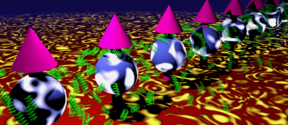
A new method for predicting the behavior of quantum devices provides a crucial tool for real-world applications of quantum technology
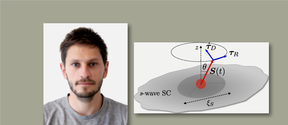
Mircea Trif will give a seminar entitled "Quantum computing with magnetic impurities in superconductors"
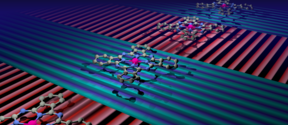
Researchers demonstrated how to control the quantum states of individual molecules with an electrically controllable substrate.

The Jane and Aatos Erkko Foundation awards a proof-of-concept grant for the design of quantum materials with quantum computers.
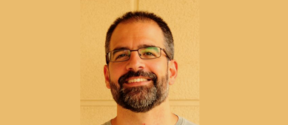
Aalto Quantum Physics Seminars (Hybrid). Speaker: Dr. Fernando de Juan (Donostia International Physics Center, Spain)
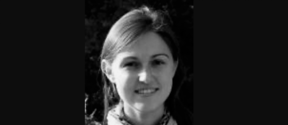
Aalto Quantum Physics Seminars (Hybrid). Speaker: Dr. Cécile Repellin (CNRS, Laboratoire de Physique et Modélisation des Milieux Condensés, France)
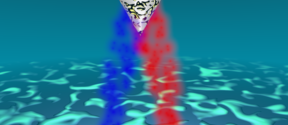
Researchers have demonstrated a new technique to measure the quantum excitations in superconducting materials with atomic precision for the first time. Detecting these excitations is an important step towards understand exotic superconductors, which could help us improve quantum computers and perhaps even pave the way towards room-temperature superconductors.
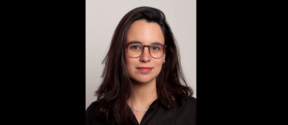
Impurity states and disorder in crystalline symmetry protected topology

Professor Jose Lado was awarded early career prize. The award recognizes the talents of exceptional young researchers who are making a significant contribution to their respective field of research. The runner-up prize was awarded to Prof. Lado by Deutsche Physikalische Gesellschaft and Institute of Physics through New Journal of Physics (NJP).
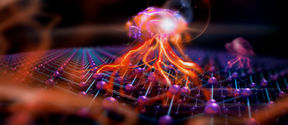
By combining two-dimensional materials, researchers create a macroscopic quantum entangled state emulating rare earth compounds
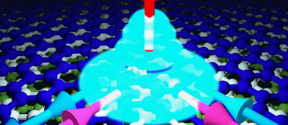
A new paper has shown it is possible to make heavy fermions in subtly modified graphene, which is much cheaper and safer
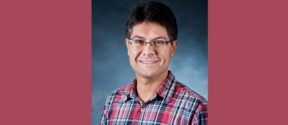
Fazel Tafti (Boston College) will give a seminar "First and second generation Kitaev magnets: The role of topochemistry in quantum magnetism"
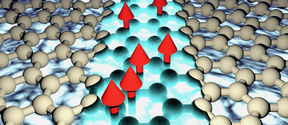
Researchers demonstrate that magnetism and superconductivity can coexist in graphene, opening a pathway towards graphene-based topological qubits
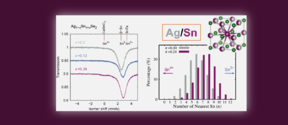
Dr. Mohamed Oudah (UBC, Can) will give a research seminar "Unusual Sn State in the Superconducting Disordered Selenide Ag1-xSn1+xSe2"
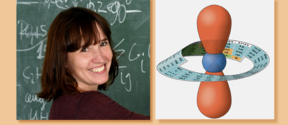
Dr. Maia Garcia Vergniory (Donostia International Physics Center/Ikerbasque, Spain) will give a research seminar "Beyond Topological Quantum Chemistry"

By combining ferromagnets and two rotated layers of graphene, researchers open up a new platform for strongly interacting states using graphene’s unique quantum degree of freedom
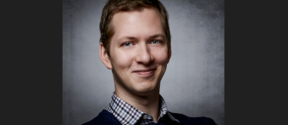
Aalto Quantum Physics Seminar (Zoom). Speaker: Prof. Evert van Nieuwenburg (Niels Bohr International Academy, Denmark)
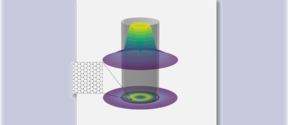
Prof. Eliška Greplová (TU-Delft Netherlands) will give a research seminar "Learning Algorithms for Control and Characterization of Quantum Matter".
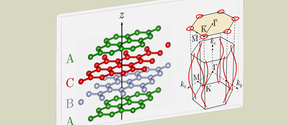
Dr. Timo Hyart (International Research Centre MagTop, Warsaw, Poland) will give a research seminar "Correlated States in Flat-Band Systems".
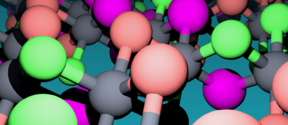
Aalto University theorist part of a team that opens up a new route to design exotic frustrated
quantum magnets.
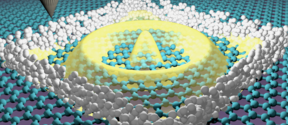
Aalto University theorist part of a team that developed a method for trapping elusive electrons
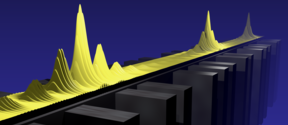
New Nature Physics paper shows how quantum particles approach an elusive critical regime in a quasiperiodic structure.
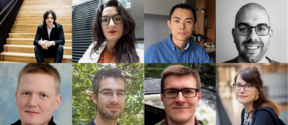
Our researchers who have been awarded Academy of Finland Fellowships tell us about what their projects will investigate
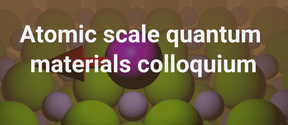
The colloquium will present novel developments in the field of atomic manipulation with scanning probe techniques and atomically designed quantum matter. This Colloquium series will start on May 4th, and run once a week, preliminary until the end of June.

Dr. Aline Ramires (Max Planck Institute for the Physics of Complex Systems, Dresden, Germany) will give a research seminar "Understanding Complex Superconductors through the Concept of Superconducting Fitness".
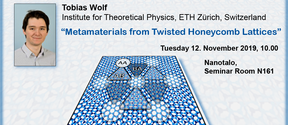
Tobias Wolf (ETH Zürich, Switzerland) will give the seminar "Metamaterials from Twisted Honeycomb Lattices" about his research.
Hosted by Prof. Jose Lado.

Join us for science and pizza in the Nanotalo lobby!

The newest theoretical physics professor at Aalto calculates what we need to do to create electronic states that can’t otherwise exist in nature, and how we can harness them for quantum computing